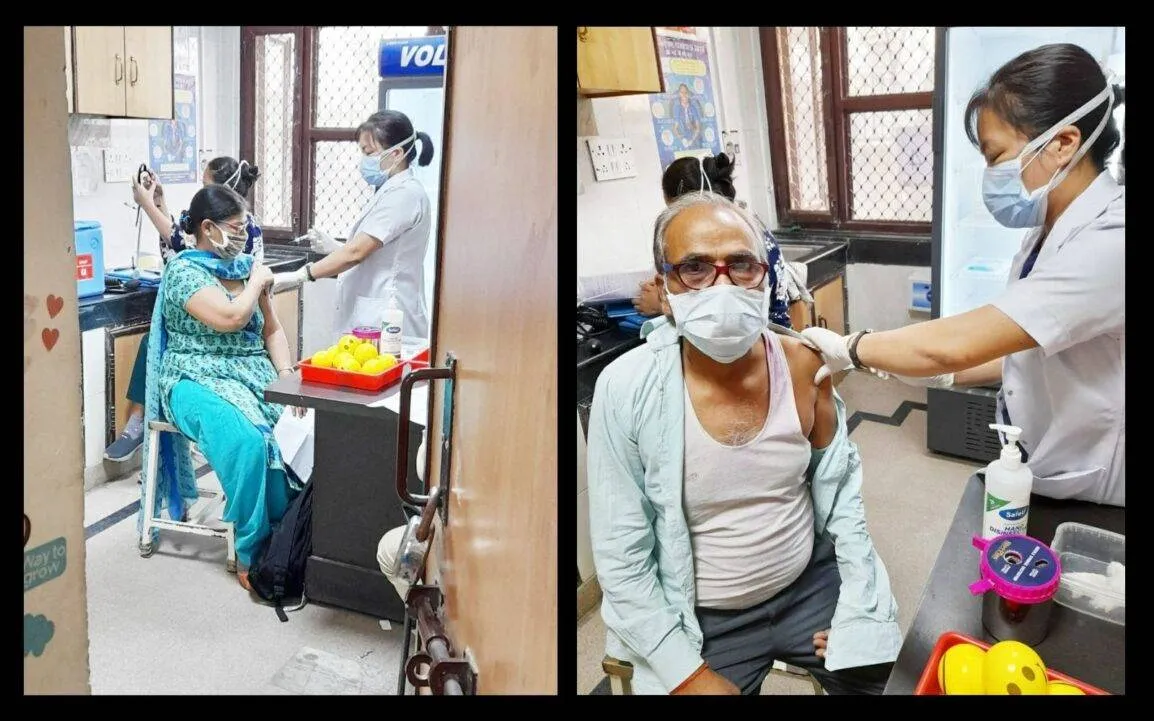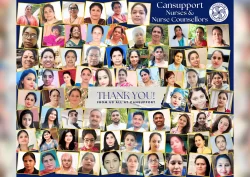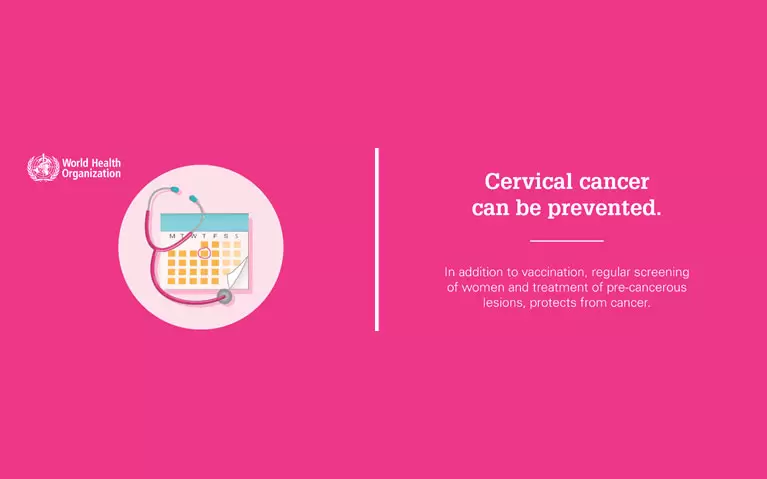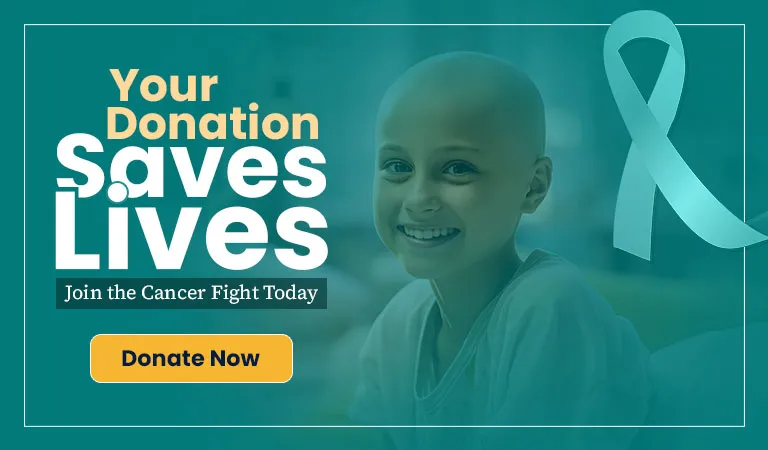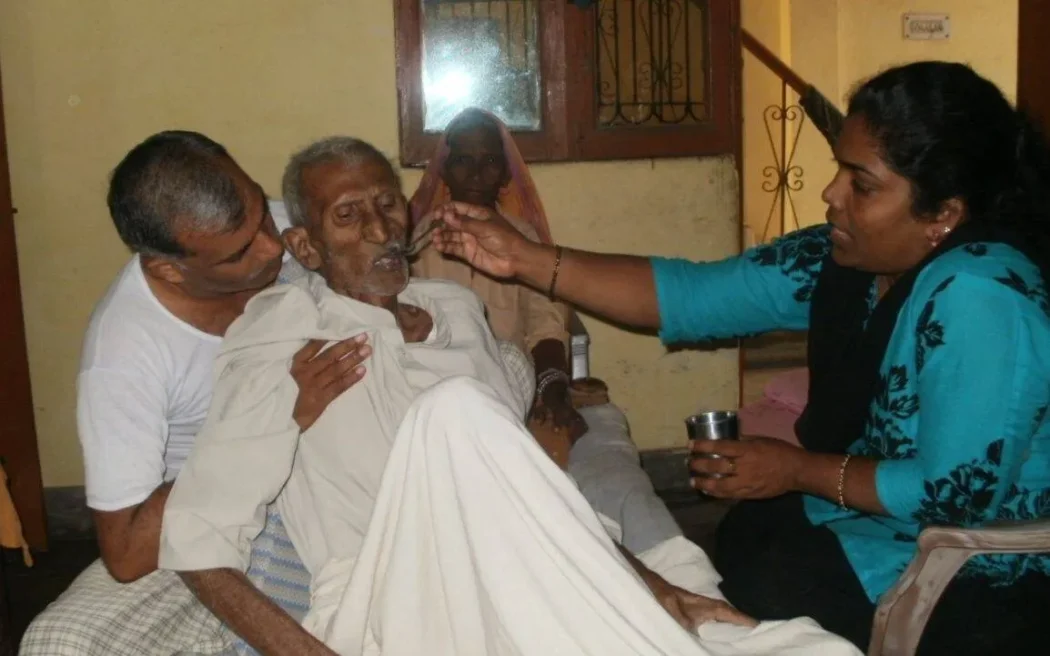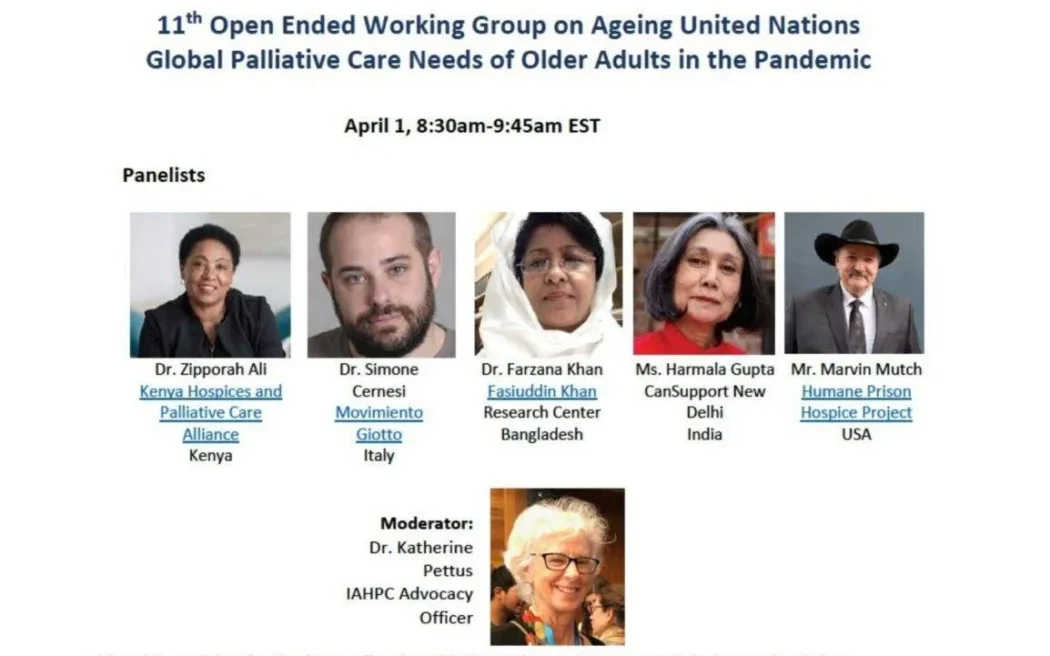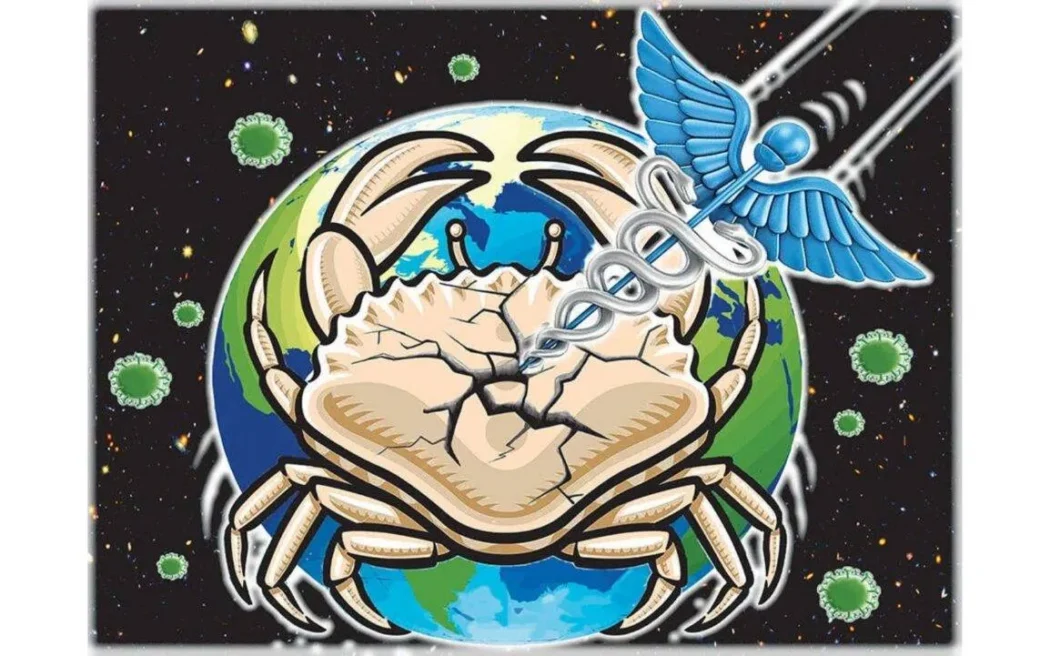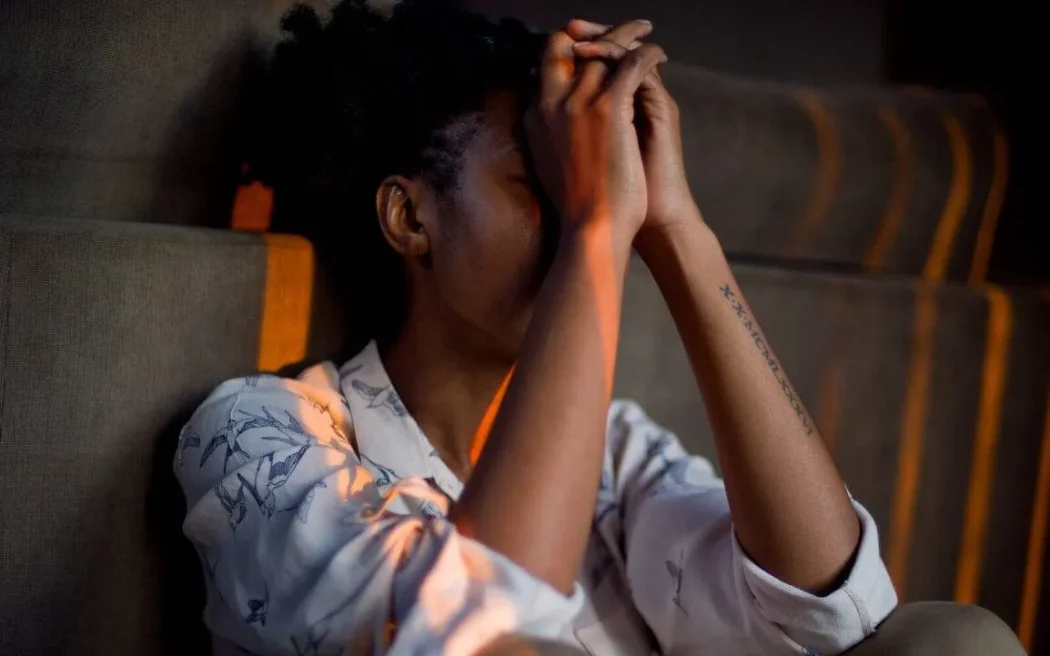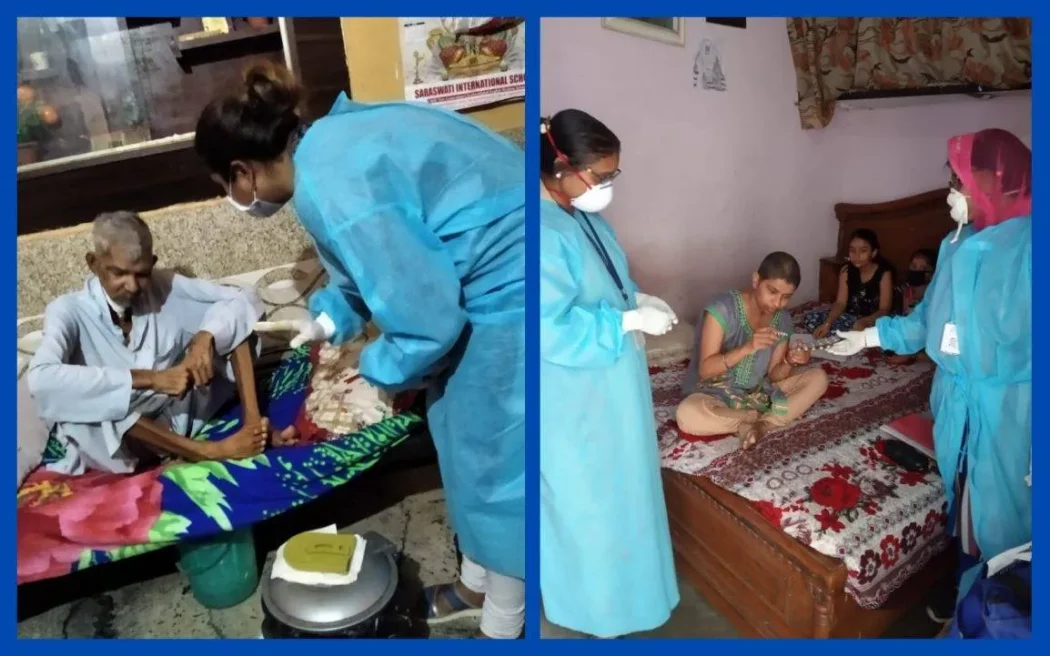Cancer patients have three journeys: a) patients with active disease on treatment, b) those with chronic disease after specific treatment and 3) patients in the survivorship phase (within 5 years of anti-cancer therapy). This information leaflet applies to all patients.
Why should you receive the vaccine?
Patients with cancer have an increased risk of severe COVID-19, especially those with blood cancers or those with advanced solid tumour or history of solid tumour <5 years ago and should be vaccinated against SARS-CoV-2 regardless of any other indications (i.e. age).
What are the downsides of the vaccine?
Patients who are on active chemotherapy may not mount an antibody response.
What is the best time to receive the vaccine?
Whenever possible, the administration of the vaccine should be performed before initiation of chemotherapy. In patients who have already started chemotherapy, the existing data do not support a specific timing of administration with respect to chemotherapy infusions.
Patients should receive ideally 2 weeks before starting therapy or when blood counts are at their highest (just before any cycle of chemotherapy). If on chemotherapy, avoid vaccination on the same day as chemotherapy and while dexamethasone is being given as anti-emetic. There is no need to interrupt immunotherapy (pembrolizumab, atezolizumab etc) or targeted therapy (trastuzumab, cetuximab). For those on anticoagulation, or with low platelets, use firm pressure post vaccination site for 5 minutes after injections. For patients on rituximab (attaches to B cells), avoid the vaccine for 2 weeks before and after the treatment dose. Patients on high-dose methotrexate should avoid the vaccine for 2 weeks before and after the treatment dose as well.
Who should NOT receive the vaccine?
- Hypersensitivity to the first dose of that vaccine , change to the other vaccine 28 days later
- Anaphylaxis to excipients (PEG or polysorbate)- see below
- Acute neutropenia till neutrophils are over 1×109/L
- Within 7 days of febrile illness
- Severe food allergies
How effective is the vaccine going to be?
The efficacy and duration of immunity in patients with cancer are still unknown. Given the immune compromised status, we suggest close monitoring for signs and symptoms of COVID-19. It has been seen that in lung and breast cancer patients, the immune response to vaccination appears adequate, although not all patients were receiving chemotherapy. In patients receiving chemotherapy, seroconversion and seroprotection rates are expected to be lower than in the general population but not in patients receiving single-agent immunotherapy.
What are the precautions for those who have had or are on chemotherapy?
Patients with severe allergic reactions to chemotherapy need to be careful. Covishield contains polysorbate/ Tween80 which is in chemotherapies like docetaxel and etoposide. Moderna vaccine (Pfizer) contains polyethylene glycol (PEG) which is in Caelyx/ liposomal doxorubicin and some nanoparticles (check the label if you have had severe allergic reaction previously). Discuss with your oncologist if you have had a severe allergic reaction to chemotherapy in past.
Should patients who have recovered from cancer also receive the COVID-19 vaccine?
Yes, patients who have recovered from cancer should receive the vaccine. Patients with active disease, especially hematologic, thoracic malignancies, and advanced cancers, are at a higher risk for severe covid infection. Although it is unclear if past cancer treatment similarly increases the risk of adverse outcomes, the COVID-19 vaccine should be taken.
Can COVID-19 vaccine be administered to patients enrolled in clinical trials?
There are no specific limitations for patients enrolled on clinical studies unless otherwise stated in the protocol inclusion/exclusion criteria.
Should patients receive additional doses of vaccine if their second dose was after the recommended time interval?
No, third doses are not recommended. Patients should adhere to the recommended dosing interval.
Should cancer patients get revaccinated if the vaccine was administered during a period of immunosuppression?
No, revaccination is not recommended at this time.
Will booster doses of vaccine be needed in the future?
The need for and timing of booster doses for COVID-19 vaccines has not been established. No additional doses beyond the two-dose primary series are recommended at this time.
Should patients with a previous history of COVID-19 infection be vaccinated?
Yes, patients who have recovered from COVID-19 infection should also be offered vaccination. Approximately 2.2 % of patients with prior COVID-19 disease were included in the clinical trials evaluating these vaccines. These patients were able to mount an appropriate response without any increase in side effects. Reinfection with SARS COV-2 is uncommon in the first 90 days after infection. Various bodies do not recommend a minimum interval between infection and vaccination in recovered individuals. You can go for vaccination 4-5 weeks after recovery from the infection.
If a patient tests (newly) positive for COVID after the first dose of the vaccine, but before receipt on the second dose, can the patient proceed to the second dose?
Yes, if the patient has recovered from acute COVID illness prior to the scheduled second dose.If the patient has not yet recovered, vaccination may be scheduled for administration up to 6 weeks (42 days) after the first dose. There are currently limited data on efficacy of mRNA COVID-19 vaccines administered beyond this window. If the second dose is administered beyond these intervals, there is no need to restart the series.
Should vaccine be given to patients with positive COVID-19 antibodies?
Yes, patients with a positive COVID-19 antibody test should be vaccinated. There is not enough experience to correlate antibodies with future protection against COVID-19 infection and immunity duration is not clearly established. Routine serological testing (COVID-19 antibody) before vaccination is not recommended. Serological testing should not be used to guide the timing of vaccination.
What are the common side effects of the COVID-19 vaccines?
The most common side effects include injection site pain. Other common side effects include fatigue, tiredness, muscle pain, chills, joint pain, and fevers. These side effects were more commonly reported in younger vaccine recipients and following the second shot of the 2-dose series. Side effects typically resolved after one to two days. At times, patients report swelling of the axillary or supraclavicular lymph nodes on the side on which they received the shot. This side-effect can be associated with a sensation of axillary fullness and is self-resolving. Avoid scheduling a mammogram or breast imaging during this period.
Should cancer patients pre-medicate before the vaccine to reduce side- effects?
Premedication is generally not advised. For patients with a history of allergy, premedication may mask early symptoms of life-threatening hypersensitivity and is therefore not routinely recommended.
Is it safe to receive other vaccines with the COVID-19 vaccine?
The safety and efficacy of mRNA COVID-19 vaccines have not been studied simultaneously with other vaccines. The COVID-19 vaccine should be administered alone, separate from other routine vaccines. The interval between the COVID-19 vaccine and other vaccines should be at least 14 days before and after its administration.
Do vaccinated patients pose a transmission risk to others in the household?
No, covid vaccines do not pose a transmission risk to others. No special precautions need to be taken around other household members after vaccination.
Should one check for a serological response post vaccination?
No, this is not recommended.
What else can you do?
Physical distancing measures, masks, face shields, sanitizers and other hygiene measures are still required during the pandemic, including for patients with cancer, and should certainly accompany the vaccination strategies.
Once vaccinated, does one need a Covid test for chemotherapy / procedure ?
You do not need to undergo testing if you have had 2 doses of the vaccine though if you have symptoms like covid infection, you may need to undergo testing.
Disclaimer: As new data emerges, the information and guidelines will be updated. This leaflet gives all the information based on national and international consensus among infectious disease specialists and oncologists.
